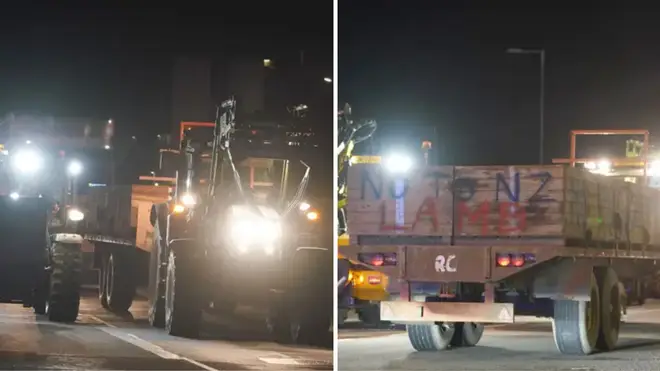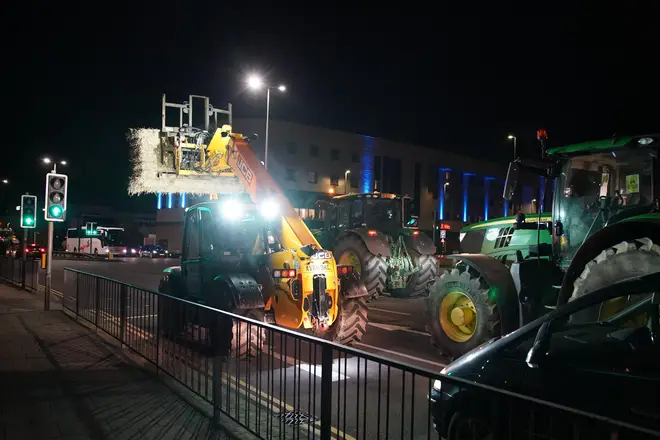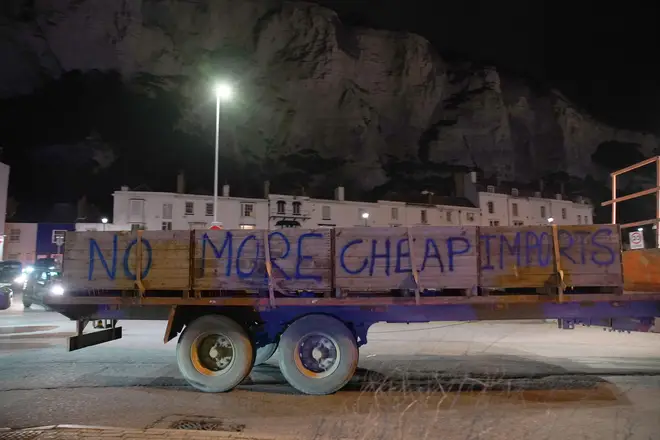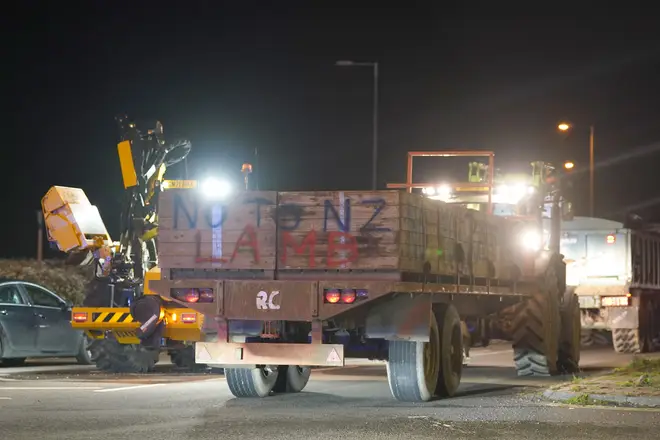
Nick Abbot 10pm - 1am
9 February 2024, 21:24 | Updated: 9 February 2024, 21:27

Farmers are using tractors to stage a slow protest in the Port of Dover about the use of cheap imported food in Britain.
Traffic in and around the coastal town has been severely disrupted since Friday afternoon - as farmers take to the roads in their heavy equipment to protest against Government trade deals with countries that provide cheaper produce.
The farming equipment used carried slogans "no more cheap imports", "no to [New Zealand] lamb" and has blocked the Port of Dover for several hours.
Farmer Jeffrey Gibson, from Wingham, Kent, posted on Facebook that the protest was against cheap imports as well as the Government's sustainable farming incentive (SFI) scheme.
Read More: Angry farmers on tractors create chaos in EU summit protest
Read More: Farmers in Spain, Italy and Poland stage further protests over EU policies
He said: "Time has come enough is enough why are we as British farmers producing food to the highest standards in the world, only for the government to do trade deals with countries producing far cheaper food with little or no standards.



"As for the supermarkets selling British produce cheaper than the cost of production shame on you.
"The time has come to take a stance, if farming continues in this country as it is with the new SFI scheme actively encouraging us not to grow food and rely more on cheap imports none of us will exist once the government changes tack leaving us unequipped to grow anything."
A Kent Police spokeswoman said: "Kent Police was called just after 5pm on Friday February 9 to a report of slow-moving vehicles in Jubilee Way, Dover.
"Officers are in attendance and working with the Port of Dover police on this matter."
The protest seems to be inspired by French farmers who have taken Paris under ‘siege’ after 800 tractors surrounded the capital in a mass protest against strict environmental regulations, red tape and low pay.
Benoit Durand, a grain farmer, told French broadcaster BFM TV: “We are holding a siege in Chartres, one hour away from Paris. It’s part of the blockade... the goal is to put pressure on the government.

“[Blockading Paris] will happen naturally. Parisians are going to be hungry. The goal is to starve Parisians. That’s it”.
Eight motorways in the paris region were captured by the farmers as a local union leader vowed to hold onto them “day and night”.
Paris could be left with only three days’ worth of food supplies if the demonstrations result in a major disruption scenario, according to government agency Ademe.
French farmers are the European Union's biggest agricultural producer and have long-lamented the fierce competition posed by countries with lighter regulations.